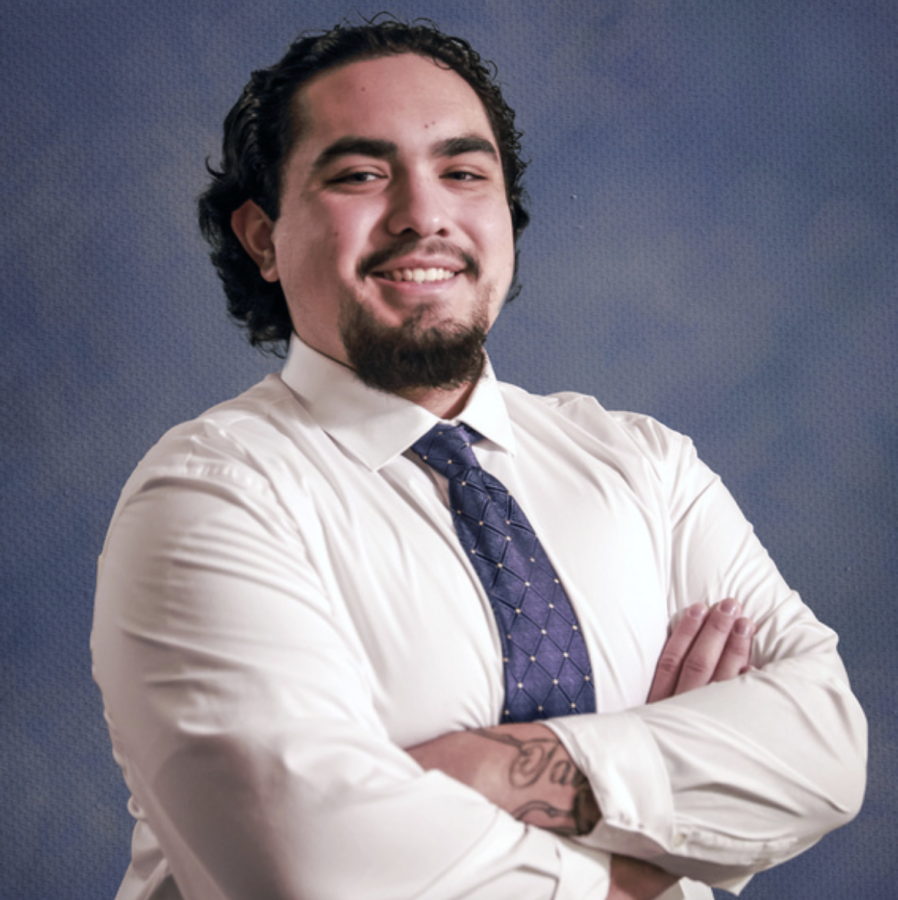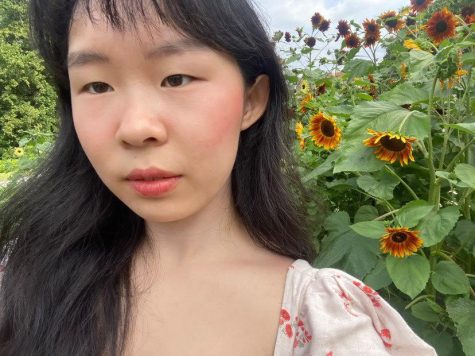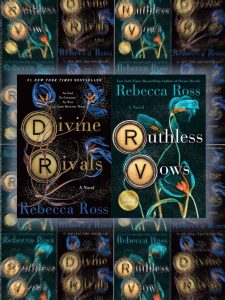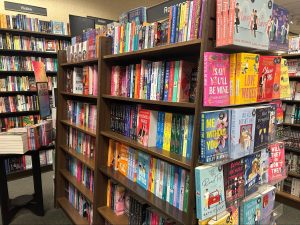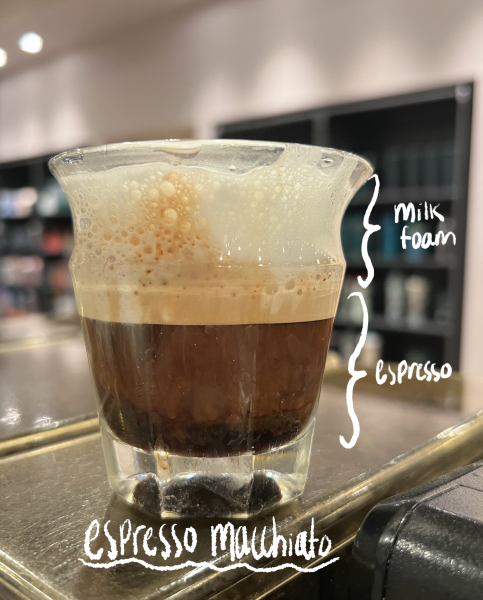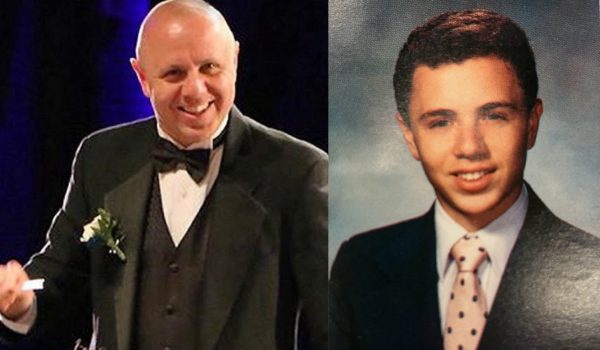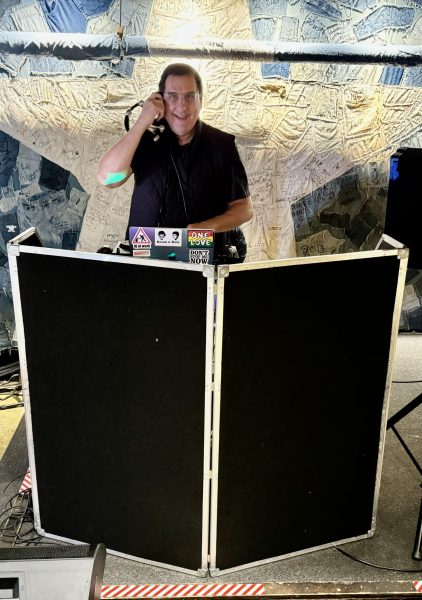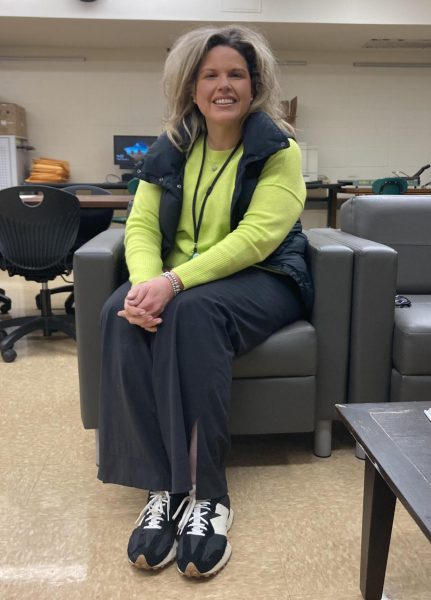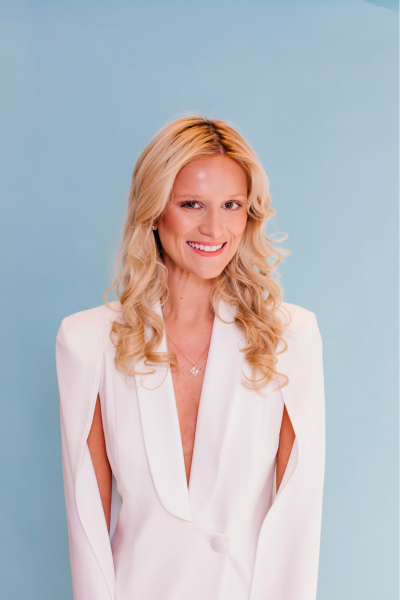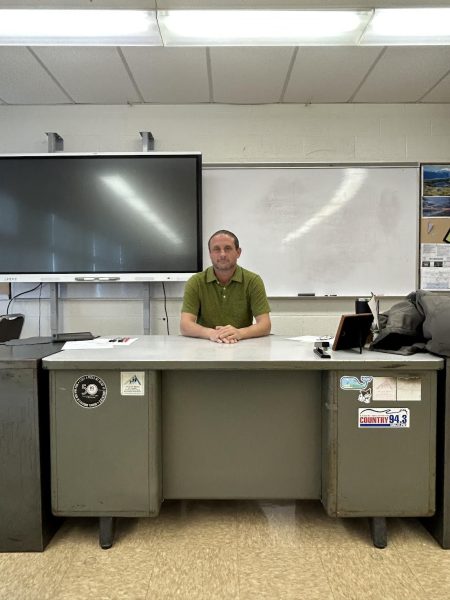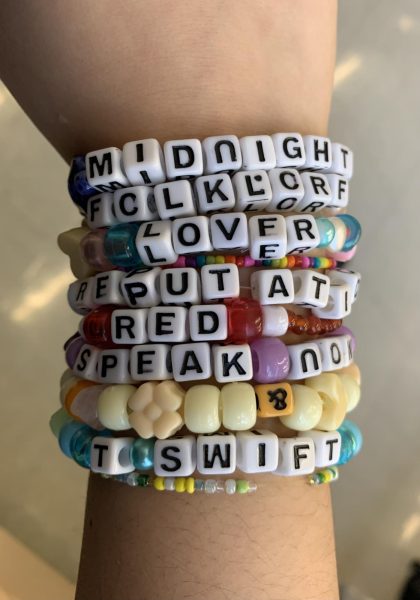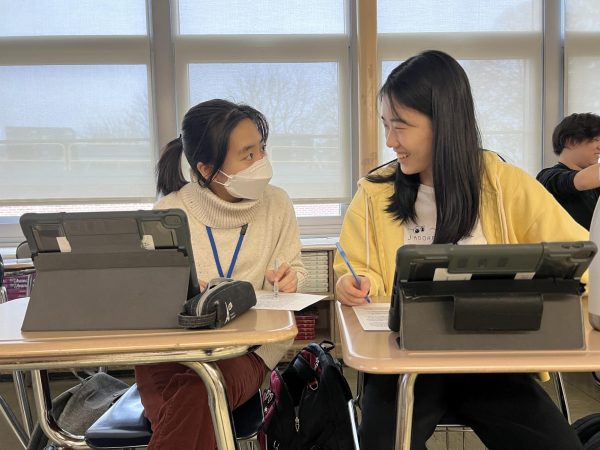Notable Alumni Interview Series #8: Holden Velasco
May 24, 2023
Holden Velasco is an award-winning student journalist currently an undergraduate at CUNY Queens College. Velasco serves as the Editor-in-Chief of Queens College’s student-run newspaper, The Knight News, where he has been a staff member all three years of his studies. Velasco has had his work published in the Long Island Herald, SLAM Magazine, and SB Nation’s NetsDaily. As one of twenty selected students, Velasco is a member of the prestigious New York Times Corps, where he receives one-on-one career-guidance from a mentor within The New York Times. Velasco graduated from Great Neck South High School in 2020.
Sophia Liu: When did you attend Great Neck South High School? What was your most memorable experience?
Holden Velasco: I attended South from 2016 to 2020. I graduated right when the pandemic started.
Finding a most memorable experience is tougher for me than for most people because I wasn’t as sociable. I went to the Southerner, played basketball, ran track, and then just went home. Playing varsity football my freshman year is probably my most memorable experience. Midway through the year, we were demoted to junior varsity, but it was still great being in that environment. The feeling of walking down every day with my team, my family, is indescribable. I’ve never felt anything else like that, and I don’t think I ever will. We would go to battle for one another.
SL: Was there a teacher at South that particularly influenced you?
HV: My eighth grade English teacher, Ms. Klein, was absolutely amazing. She saw the potential in me and saw how I was struggling to be social. She helped me become a better person. A lot of who I am today is because of her.
The same could be said about Ms. Hastings. I’ll never forget that when my mother passed away from leukemia midway through my junior year, I couldn’t function, as one would expect. One class period for The Southerner, Ms. Hastings pulled me aside and asked if I was okay. Up to that point, I never really had a teacher do that. Ms. Hastings recognized that I wasn’t okay, and she really cared about her students.
I’d also like to mention Ms. Sorise. History with her was amazing.
Senor Friedman from Spanish. I think we were his first class, and we sort of messed with him a bit. He was someone who I felt I could connect a lot with as a person.
Mr. Moran from English.
Ms. Cipriano from Environmental Science. After the passing of my mom, she kept an extra eye on me, but not to the point where my classmates would obviously notice something.
Lastly, of course, Coach Mike from Technology.
SL: At South, you were in Journalism and wrote for The Southerner. Why did you join The Southerner and how has it influenced you now?
HV: I joined because my dad was a journalist. I’ve also naturally been comparatively “good” at writing. It was always something I wanted to do. High school was mostly school, sports, home, and repeat. Joining The Southerner gave me something else to do. I saw the people who were at The Southerner at that time and how close they were. I wanted to see what was up with that. I began in sophomore year and took Advanced Journalism my junior year.
It was a great experience. The Southerner really is a close-knit family, and it really affected how I am now. Obviously I’m going into journalism, so having that foundation of what Ms. Hastings taught us was really important. By doing these stories for The Southerner, you learn to figure out things by yourself. Now is the time to get that foundation and try new things because in college, you have to declare your major by your second year. Joining The Southerner solidified my interest in journalism.
SL: You graduated from South in 2020, which was obviously not a normal year. How was your experience graduating and transitioning to college during a pandemic?
HV: Horrible. We had no idea it was coming. I thought we were just going to have a two-week vacation. I vividly remember that last day too. I have no closure in that. Obviously the school did the best they could to try to give us some sort of graduation, some sort of feeling of accomplishment with the parade and the drive-through celebration. But to this day I don’t have that. And honestly, it was extremely depressing. I didn’t like South, I’ll admit it. But I still wanted that feeling of closure that my class of 2020 could never get.
Going into my freshman year of college, I was on Zoom and didn’t feel like I was really learning. The classes were on material that I learned at South, so I was just reviewing. But mentally, I felt horrible because I didn’t feel like I was actually in college. It just felt like I signed up for something online and I was just joining it every Tuesday or whenever. It was extremely isolating and it was honestly probably the worst time period of my life that I’ve gone through so far. It was just how the world was and I have to live to accept it.
SL: Did you take care of your mental health during that period of time or have you taken care of your mental health since then?
HV: During that period? Absolutely not. I was a frantic little ball of stress, anger, and depression. I’ve had turbulent times since then too, and I’ll always speak openly about my mental health because speaking out is necessary for the stigma to change. I’ve struggled with so many things in my life, and I’ve gone to therapy for a multitude of reasons. Slowly, over time, it doesn’t necessarily get better, but you learn to accept whatever is going on and you find new things to dwell on that make you happy. During that time period, I was an absolute mess. But over time, after reaching out for help, I did get happier. I won’t say the word “better” because that’s subjective. I became happier, and that’s the only thing that matters.
SL: You serve as Editor-in-Chief at The Knight News. What is it like pursuing journalism at Queens College and how did you assume this position?
HV: Queens College had a journalism program until I went there. Now, they’re probably going to bring the minor back next semester. So I’ve kind of had to eyeball my classes and my major. I’m a Media Studies major and a Writing minor, which is close enough. I do courses that are relevant to journalism. but there’s no specified journalism program or specified journalism classes. The closest thing I’ve had to journalism is The Knight News. The Knight News is Queens College’s only school newspaper since the early nineties. My dad actually graduated from Queens College, but he never wrote for The Knight News because he graduated before it was established.
I reached out to The Knight News before I was even in a class at Queens College because I was just sitting there in quarantine with nothing to do. I published an article before I had my first class. Since 2020, I’ve just been doing The Knight News consistently. Over time, my skills developed, people saw something in me, and I was promoted. I was the Sports Editor and Webmaster for around two years. I was responsible for our WordPress website and put up all of the articles. As Sports Editor, all the sports articles would go through me and I would edit them.
Traditionally, at Queens College, elections for student organizations happen at the end of every spring for next year’s president, treasurer, and secretary. The Editor-in-Chief is the president of The Knight News club. But what happened was the previous Editor-in-Chief stepped down midway through the year and wanted me to replace her. I stepped in and in a sort of emergency election. Since then, I’ve done my best to revamp The Knight News. This semester, we went to print for the first time in three years, and we distributed a thousand newspapers in two days, which is unprecedented in The Knight News history. I also quadrupled the staff. We reach an audience of approximately 20,000 people.
I slowly made my way up the ladder. Not intentionally, but just by doing the work and going an extra mile. If I saw that a coworker needed help, I would offer help. One time, my former Sports Editor was having trouble finding statistics and I helped even though that’s not required in my job title. If you just go the extra mile and just help people out, eventually, you’ll get a higher position if that’s what you want. That’s not something I always wanted or what I worked for, but I took the position. I work for myself, for the craft. But I’m blessed now to be in a position where I can help people improve their craft with the power that they decided I should have.
SL: Much of your journalism focused on sports. How did your interest in sports journalism begin and how do you approach reporting on sporting topics?
HV: I love sports. I played three varsity sports at South. My dad is a huge sports guy. So I always knew I could write about sports for a living, which sounded amazing to me. But it’s not that simple now. Sports journalism is simpler than investigative journalism about like the White House or the government, but it’s not easy.
What my mentor at the New York Times tells me is to find the in-between stories. Everyone knows LeBron James, but journalists have to tell their audience something they don’t know about LeBron. Find those small stories about what these athletes are doing and how they got here. The how and the why are so important. That’s what I try to do in sports journalism.
SL: Congratulations on being selected as a New York Times Corps Mentee! What was the application process for that like, and how does the program support your work?
HV: I think it is a funny story because our faculty advisor here at The Knight News, Jason Tougaw, kept sending around the application to all The Knight News staff. The New York Times Corps is specifically meant for people who are underrepresented in the newsroom, so I thought I should apply. I wasn’t confident in myself, honestly.
For the application, you have to fill out your basic information and send out media work, which are the articles that you have written. Then, there was the cover letter. I was staring at that blank screen for probably eight hours. I’m like, what the hell do I write about? Eventually, I just wrote about the truth. It’s hard to explain what I wrote about because it kind of just came out of me. I talked about my relationship with sports and writing. I actually mentioned South in it. I’m paraphrasing, but at South my friends were sports people. I woke up every day looking forward to seeing them. I could go into Donald Herr’s office and he always welcomed me in.
After I submitted my application, I got an interview with Theodore Kim, who is the Director of Newsroom Career Programs. He was so intimidating. I was in Memphis with my dad at the time. I remember I was just sitting there thinking that this is one of the most influential people in journalism. I was so nervous, and the interview was only around 10 to 15 minutes.
Eventually, I got in. When I found out, I was on cloud nine. I didn’t even know how to feel. Since then, the program has been amazing. I was paired with Randal Archibold, who is now the Senior News Editor. We’ve been talking back and forth for months now. He helps me out in so many ways, giving me small and big pieces of advice. He’s been in journalism for at least three or four decades. He’s absolutely a genius and a great person. It’s just been amazing to be on Zoom with him and I’m very grateful for this opportunity. The program also consists of monthly meetings where we speak with other people from the New York Times. It’s been amazing seeing inside the mecca for journalism and seeing that the staff at the New York Times is human too since the New York Times has almost a golden aura.
I’m so grateful to be invited to the table with 19 other people in my cohort and to have the New York Times take time out of their day to speak to me. I share the knowledge I gain with my team at The Knight News, trying to give back as best I can. I speak to you guys when I can and it’s just a blessing and life altering. I’m also so grateful to be able to represent New York, since I’m the only student from New York that was selected.
SL: You mentioned losing your mother your junior year of high school. How did you process and overcome that piercing amount of grief at such a young age, and do you have any advice for others battling loss and adversity?
HV: I’ll start first with advice. For people who aren’t struggling with loss, just tell your parents that you love them because you’ll never know when the last day is. My mom was always sick, so it was normal to me, but I didn’t know she was passing until the day of. Something I always tell people, especially my friends who don’t get along with their parents for whatever reason, is to just tell them you love them, even if you don’t mean it.
For people who are going through it, I’m not going to give you some cliche like “it gets better.” That goes without saying. I didn’t grieve properly when it first happened, I just bottled myself up even more. You have to lean on those who are closest to you because they care about you. I didn’t do that. If the people who are closest to you see you in a legitimately grieving process, they will reach out to you. I just didn’t want to have that love for whatever reason. I just bottled myself up because I couldn’t take it.
To anyone that’s struggling through adversity, I would say just stop for a moment. Just stop and go outside and if it’s a nice day, just look at the clouds and slow down. Find quiet. Find silence even if it’s for like two minutes. Whenever I feel overwhelmed by whatever, I just stop outside and turn my phone off, turn the AC off, so that I can be in literal dead silence. I have a moment of self-reflection where I think, I’m going through this but I’m still here. You have to understand you have to ask for help first, but at the end of the day, it’s gonna be on you to self reflect. I’ll always suggest having somebody there for you, specifically professional help.
SL: Another topic you spoke about during your visit is finding (or trying to find) balance between school and work and life. How do you balance being a student while also managing an entire publication?
HV: I haven’t been doing it well. But you have to know you’re a person too. And if you’re like me, you have so much responsibility. You have classes, you have XYZ going on, and you have to enjoy your life. A problem I saw at South and part of the reason I did not like going there was that everyone was so wrapped up in working. So many of my classmates thought, “I have to get straight A’s and go to Harvard.” If you can get straight A’s and go to Harvard, that’s genuinely amazing for you. But that has to come with a balance of not wanting to constantly study everyday. Check up on your friends. See a movie.
I have to put down my Knight News work. That’s what I’m doing right now. I’m stopping my Knight News work because I don’t want to keep staring at the 20 articles I have to copy edit. I want to speak to you and indirectly Great Neck South. Later this week, I’m going to my dad’s place. I’m on spring break, and we’re going to Nashville. I’ll still be working on The Knight News when I’m on vacation, don’t get me wrong. But I’m going to see some museums, get some barbecue, and spend some time with my dad.
You’ll drive yourself insane if you don’t find balance. If you’re at the point where all you’re doing is studying or all you’re doing is going out and drinking and smoking, you will fall off and eventually burn out one way or the other. I’ve seen people who have gone to Ivy League schools become the most unhappy people I know. They crumble because their whole life is based around work. And that’s not necessarily bad unless you balance it with, for example, getting a pizza slice and sitting down with your roommate and talking about basketball.
You have to enjoy not only your work but also your life. Not only do you have to take your work seriously, you also have to take your enjoyment seriously. If you don’t have both, you’ll never be truly happy. Don’t go into a job that you don’t wake up every day excited to do. Because I did that somewhat at my day job, and I quit because I just couldn’t do it anymore.
SL: Having gone through the college application process, I’ve realized that the obsession with and aggrandization of the Ivy League is dangerous because it, in turn, stigmatizes state colleges as less worthy and students as less capable. In reality, so much of college matriculation is based on economic and social privilege. Have you felt this stigmatization and if so, how have you confronted it?
HV: I didn’t care what other people thought, I’ll say that. I go to a CUNY school, which is a public school in the city of New York, and I was selected over thousands of applicants to be in the New York Times Corps. Where you go to school does not matter so long as you get that degree, you have the extracurriculars, and you’re not a bad person. That is all that matters. If you go to an Ivy League school, that does give you that little extra boost in the eyes of employers and the networking is very good, but it’s not ride or die.
That was part of the reason why I just did not like being at South, because you could feel the pressure in the air. You could feel everyone being stressed out about whatever the next test was. And that’s just not real. South is a bubble, but that’s not to say South itself was bad. The teachers were amazing. To this day, I feel very ready because of them.
Just slow down. Like I said, I got into the New York Times Corps and I go to a public New York City school.
SL: What advice would you give to high school students, young journalists, or anyone in the process of figuring out themselves and their future?
HV: Make sure you wake up every day looking forward to what you’re going to do. That can be hard sometimes and it’s hard for me still today sometimes. In high school, you’re still figuring out who you are. Find silence and realize that as long as you are putting in your best effort, you are doing the right thing. Your grades don’t define you. That amount of girls or boys you pull doesn’t define you. It’s about how you feel inside. If you don’t love yourself, you can’t be loved, and you’ll have an internal battle every day. Only until recently did I find a balance in my life, and now I feel better.
To the young journalists, I would say listen to your eyes and ears. They’re the most important thing that you have because they find what’s interesting to you, which is probably interesting to your audience. Follow what interests you. Go the extra mile. Always be willing to take on challenges. You have to understand that you are the bullhorn for the student voice because people can always complain, but when something goes out into a publication, it really gains noise. Journalism is such a craft that’s so unique and interesting because it’s writing, but it’s not writing, it’s broadcasting but it’s not broadcasting. It’s public work, but it’s not public work. Without it, the world would be a very weird place. It’s a craft that is very noble and should be taken seriously, but that’s not to say you can’t have fun with it. I have fun with it every day. Obviously most of journalism is serious, but I won’t take away the amount of fun someone who’s writing about a video game is having, because to them they’re having just as great a time as someone who gets a very big breaking news story. As long as you’re doing something that feels worth it, that’s the embodiment of journalism. Enjoy yourself and trust your gut. You’ll always have your editors to rely on. In conclusion, all that you should be shooting for is happiness. That’s it. If money comes with it, great. If the car comes with it, great. But it’s happiness. That’s what you’re going for.
SL: What are you working on now? What’s next for you?
HV: At this moment, we’re coming out with our April issue for The Knight News. It will be 24 pages with maybe 20 articles and some cartoons in there. What I’m looking for in the future is getting a sustainable system in place with departments and new staff so that when I graduate, The Knight News doesn’t die down. In terms of what’s next for my career, I don’t know. I take it day by day. I firmly believe in living day to day.

